-
Welcome to Tacoma World!
You are currently viewing as a guest! To get full-access, you need to register for a FREE account.
As a registered member, you’ll be able to:- Participate in all Tacoma discussion topics
- Communicate privately with other Tacoma owners from around the world
- Post your own photos in our Members Gallery
- Access all special features of the site
05 Tacoma Misfire cyl 4 196k miles
Discussion in '2nd Gen. Tacomas (2005-2015)' started by Mckruzer, Nov 27, 2023.
Page 2 of 2
Page 2 of 2


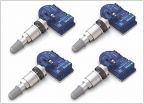 TPMS Batteries on the way out '06
TPMS Batteries on the way out '06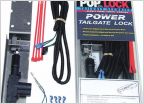 Input needed: PL5200 vs. PL5400?
Input needed: PL5200 vs. PL5400?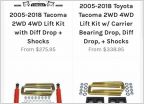 Lift
Lift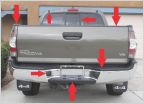 Black Plastic?
Black Plastic?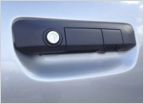 Pop and Lock PL5400 problem
Pop and Lock PL5400 problem 2014-2015 replacement backup camera
2014-2015 replacement backup camera

